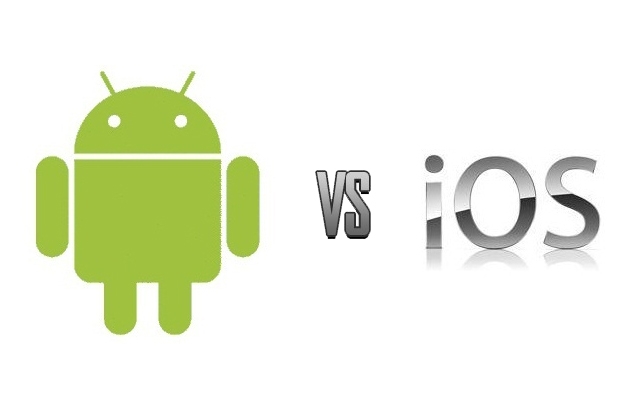Are you in the market for a new smartphone? Most purchasers are choosing between the two largest operating systems in the smart phone market, the Android and the iOS.
The Android is the current operating system of the majority of smartphones. It has seen a rapid increase in its market share since the launch of the first Android phones in October of 2008. It is owned by Google and has slowly increased its share of the tablet market in the last few years.
The iOs is the operating system owned by Apple. It was launched in January of 2007 and is still the most popular operating system on tablets, thanks to the huge success of the iPad. It is the operating system on all Apple iPods, iPhones and iPads exclusively.
When looking at the two operating systems there are many factors to consider. Each system has its strengths and weaknesses, and may appeal to different users depending on what the user’s preferences and past experiences are. Both Apple and Google are eager to keep their market share and expand their markets, and to keep the smaller operating systems( such as Windows Mobile and Blackberry 10) from gaining in popularity.
Here are some of the things to consider when buying your new phone:
Cost
Because Android is free, many companies have developed phones and tablets using this operating system. A wide selection of phones, tablets, e-readers and even cameras use Android. This has resulted in a huge selection of very affordable electronics that are competing against other operating systems. Many of these gadgets are great, but some come with older versions of Android, and because of hardware limitations cannot be upgraded to the latest versions. The latest version is 4.2 Jellybean.
iOS is owned and used exclusively for Apple products only. It has resulted in a higher price for iGadgets, with no competition in the market and prices that remain stable. The operating system is updated only by Apple, often coinciding with the launch of their new products. Apple has been careful to ensure that older models are also given updates, but as their operating systems evolve, many first generation models of iPods, iPhones and iPads are being left without the ability to be updated. iGadgets are known to cost more, but they retain their value even after the launch of new products.
Making Purchases
Apple has had great success with its iTunes store. Making a purchase on one iGadget makes the item available on virtually all of your iOS devices. Apple’s selection of secure products has given it a strong advantage in the market. Fans of Apple products are loyal, avid and numerous.
Despite its success, Apple has often been criticized about it’s strong control over content available in iTunes. All materials for sale in iTunes must first be approved by Apple and some believe this to be unfair.
Android struggled for a long time, without a common marketing strategy for it’s media and digital store. The user can download apps without any approval from Google, so many developers created their own programs and materials to customize and open up more options in the Android system.
In March 2012, Google launched Google Play. It combined many separate stores into one central offering. It offers music, magazines, books, movies, TV and Apps all in one location. The Android operating system was modified to make these stores more easily accessible to users. Google Play certificate cards are now available in the United States and are rumored to be coming to Canada in the near future.
Choice
If you are looking for a fancy colour or a special style of phone, you are not going to get this with iOS. Your choices are going to be black or white, with a few variations on the amount of memory you can have. Android has a myriad of choices of colours, screen sizes, brands and styles. Making sure your phone has the latest version of Android is of course one of the biggest catches.
Simplicity
Despite Google’s improvements to Android with 4.2 Jellybean, it is still not the most straight forward operating system. Customizing and downloading additional programs may alter the way your Android looks and performs. In terms of simplicity, Apple has the advantage.











